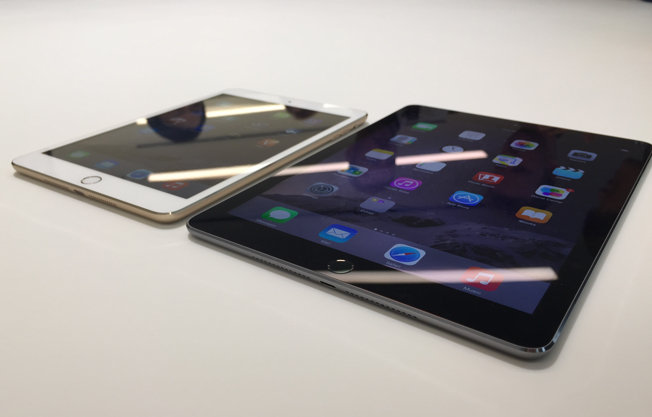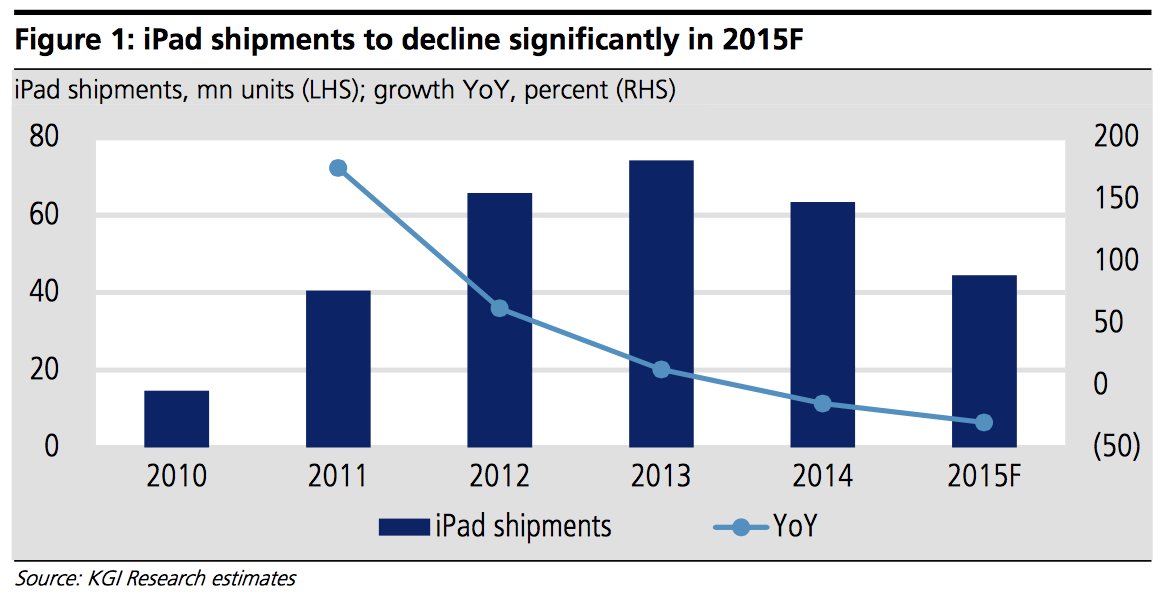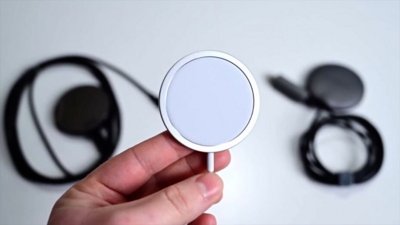Apple's shrinking iPad sales are expected to continue their downward trend this year, led by a particularly drastic year over year drop this quarter, according to well-connected analyst Ming-Chi Kuo, who does not expect a new 12.9-inch model to turn things around in the immediate future.
Kuo, of KGI Securities, believes iPad shipments will "struggle to top" 45 million units this year, he said in a new research note on Friday, a copy of which was obtained by AppleInsider. That would result in a 30 percent year over year decline from 2014.
Apple is expected to introduce a new 12.9-inch iPad model this year, and Kuo still believes that larger form factor is on track to launch. However, he doesn't expect the new model to "contribute meaningfully to shipments momentum anytime soon."
Kuo believes iPad sales will get off to a particularly rough start in 2015, with his projections calling for shipments to decline 52.7 percent in the first quarter of calendar 2015 to just 10.1 million units. Next quarter, he expects them to drop another 30 to 40 percent to between 7 million and 8 million units.
Kuo's predictions call for iPad shipments in 2015 to witness their steepest decline in the product's short five-year history.
Last month, Kuo was well above market expectations when he said he believed Apple had shipped 73 million iPhones in the December quarter. His lofty estimate proved more accurate than most, as Apple soon after reported massive record sales of 74.5 million iPhones in the three-month period.
 Neil Hughes
Neil Hughes



 Christine McKee
Christine McKee
 William Gallagher
William Gallagher
 Thomas Sibilly
Thomas Sibilly
 Andrew O'Hara
Andrew O'Hara
 Amber Neely
Amber Neely
 Marko Zivkovic
Marko Zivkovic
 Malcolm Owen
Malcolm Owen
 William Gallagher and Mike Wuerthele
William Gallagher and Mike Wuerthele









186 Comments
Will it be profitable? Yes.
Is it still selling enough for Apple to continue development? Yes.
Will analysts use this as a reason to eviscerate Apple and Tim Cook, and downgrade the stock? Of course!
Is there room for improvement in the iPad line? You bet.
The lighter they make it, the slower it'll drop ¡
And the shorting begins...
LOL @ Kuo.
I would guess he's probably close with his predictions. The iPad has likely hit close to its saturation point and given the size increase in iPhones, many people, myself included, use the iPad much less and have less reason to upgrade.
Going bigger will simply open up a percentage of the market that wants / needs a bigger screen size, but I don't see it being a game changer that gets millions to upgrade from the iPad 4, Air and Air 2.
I'm not even convinced a bigger screen iPad is something that will work without additional peripherals, like the Surface Pro needs its keyboard. Sure, there are some situations where a bigger screen can function without a keyboard, such as watching videos, gaming or acting as a reader or photo viewer, but otherwise, going bigger presents issues with weight and handling, making it more likely to be used like a laptop. At least that is my take on it.